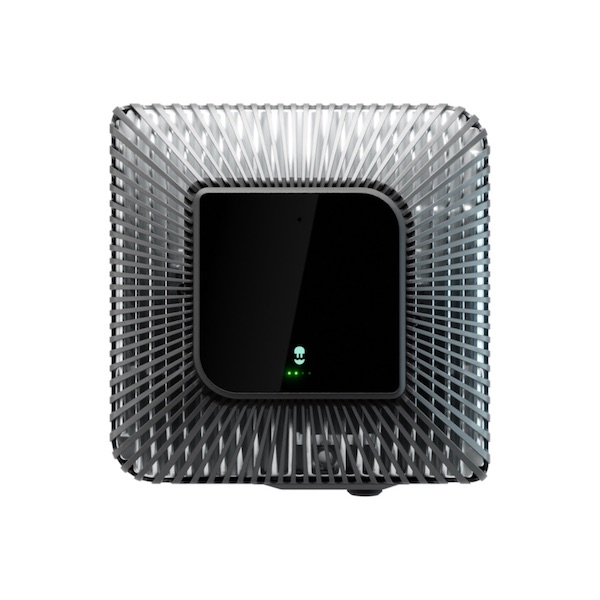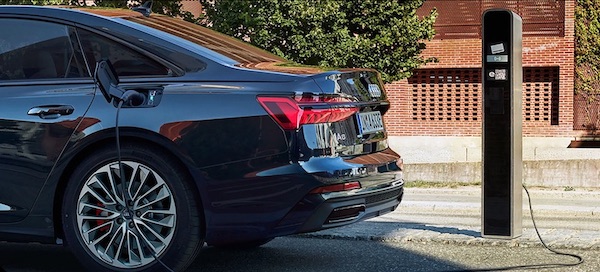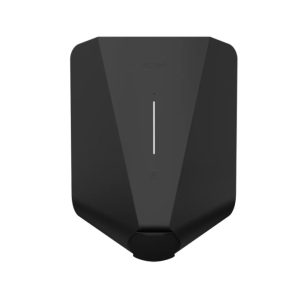Overview
Kia Corporation, the South Korean automotive manufacturer is fast developing a portfolio of lower emission ‘eco’ vehicles, to include zero-emission battery-electric vehicles (BEVs), plug-in hybrid electric vehicles (PHEVs) and mild hybrids. The BEVs and PHEVs range includes:
- The all-electric Kia Niro EV
- The all-electric Kia Soul EV
- The all-electric Kia EV6
- The all-electric Kia EV6 GT
- The all-electric Kia EV9
- Kia Niro Plug-In Hybrid
- Kia XCeed Plug-In Hybrid
- Kia Ceed Sportswagon Plug-In Hybrid
- Kia Sportage Plug-In Hybrid
- The Sorento Plug-In Hybrid
The Korean automotive company is headquartered in Seoul, and it is South Korea’s second largest automotive manufacturer after the Hyundai Motor Company. Hyundai owns a 33.88% stake in Kia. The Kia Corporation has been active in the European markets since 1991.
Electric Cars: The Basics
For those of you new to zero-emission electric driving, we recommend a read of the following articles:
Sign up to the e-zoomed Electric Living newsletter
The All-Electric Kia EV9 SUV
The launch of the pure electric Kia EV9 is certainly welcome news, given the current lack of availability of seven-seater pure electric SUVs in the market, in particular, more affordable 7-seater family electric cars. Like the all-electric Kia EV6, the all-all electric Kia EV9 is also built on the E-GMP (Electric Global Modular Platform), a dedicated EV platform. The EV9 is the first dedicated three-row EV SUV from the South Korean automotive manufacturer.
For those new to electric cars, EVs developed on a dedicated EV platform offer more interior space (less wasted space), better layout and design, longer wheelbase etc (the EV9 has a 3.1m wheelbase). Bespoke EV platforms offer the opportunity to place the EV battery on the floor of the vehicle (flat architecture), giving much scope to improve the design, performance and practicality of the electric vehicle (EV).
In contrast, electric cars developed on a shared platform/ architecture with conventional internal combustion engine (ICE) cars, have to compromise, given that the platform has not been developed solely with an electric car in mind! It is worth noting that the latest-generation of pure electric cars are being built on a bespoke EV platform! We can expect this trend to continue!
The concept version of the EV9 was shown at the 2021 Los Angeles Auto Show. Kia unveiled the production version of the EV9 in March 2023. The flagship production EV9 version does share a common design language (boxy and triangular) with the concept vehicle, and to a large extent quite similar to the concept.
One notable difference between the concept vehicle and the production EV9 are the doors. Kia eventually settled for more conventional (and practical) doors for the production variant. Sensible!! Other differences include the panoramic roof and the solar panel built into the car bonnet.
It is also apparent from the latest electric car from Kia, that the company is keen to target a more premium buyer, as it seeks to further enhance its brand cachet. Kia has come a long way since its introduction in the UK in 1991! The Kia EV9 is being manufactured in South Korea.
The EV9 electric SUV is available in only one EV battery size (99.8 kWh). Kia has incorporated its fourth-generation battery cells in the high-voltage (800 volt) EV battery. A 99.8 kWh EV battery is certainly a class-leading size and offers much practicality for both city and motorway driving.
The electric SUV is available as both, a rear-wheel drive (RWD) and an all-wheel drive (AWD). The entry-level RWD variant has a claimed EV range up to 349 miles (WLTP), while the AWD has a claimed 313 miles (WLTP) electric range.
Even adjusting for real-world driving conditions, the EV9 offers a practical range for most family needs. A number of factors can impact the claimed range. Some of these include: speed, passenger load, weather conditions, road conditions, temperature, tyre size etc. For the entry-level RWD EV9, expect an electric range closer to 300 miles, while the AWD variant should be able to deliver over 270 miles on a full battery charge. Put another way 3+ miles per kWh is realistic!
The EV9 offers DC charging capability up to 350 kW DC. At 350 kW DC the EV battery can be charged up to 80% in 24 minutes i.e. an additional 154 miles of electric range can be added in 15 minutes. It is true, in that, the ultra-rapid DC charging infrastructure in the UK is still at early stages, but expect this infrastructure to develop fast. Having said that, the EV9 can be charged up to 80% in 83 minutes using a 50 kW DC charger, which are fast becoming widespread across public EV charging stations in the UK.
The Kia EV9 offers a 11 kW (3-phase) onboard AC charger as standard. For those with access to 3-phase AC charging at home or the workplace, the electric vehicle (EV) can be fully charged in 9 hours and 5 minutes. However, as most homes in the UK are powered by single-phase (7 kW) power supply, charging at home will take longer (14 hours).
Yes, the EV9 can be charged via a 3-PIN domestic socket. However, we at e-zoomed discourage using a domestic socket for charging an electric car. For the EV9 electric SUV, it will take up to 40 hours and 35 minutes to fully charge using a household plug!
In terms of performance, the entry-level single-motor RWD Kia EV9 will not set the heart racing, but the AWD certainly has more performance on offer. The rear-wheel drive (RWD) variant can achieve 0-62 mph in 9.4 seconds (max power: 200 bhp/ 350 Nm torque). The top speed of the EV is 114 mph.
The twin motors all-wheel drive (AWD) variant can achieve 0-62 mph in 5.3 seconds (max power: 378 bhp/ 700 Nm torque). The top speed of the EV is 124 mph. Not a bad performance given the additional weight of the EV battery (556.5 kg). The EV incorporates regenerative braking and one-pedal driving.
The EV9 has yet to be assessed for the NCAP Safety Rating, but worth noting that the Kia EV6 achieved Five-Stars. We would expect the same for the EV9. The EV9 offers a host of safety features and driving aids. Some of these include: blind-spot view monitor, forward collision avoidance assist, intelligent speed limit assist, lane keep assist, highway driving assist 2, parking collision-avoidance assist, remote smart parking assist, rear occupant alert and more!
It is not often that a 7-seater SUV body style can prove practical and spacious in regards to the 3rd row. The EV9 is an exception to this rule, as for most adults, the 3rd row does provide reasonable legroom and headroom. Of course, for taller adults this maybe a challenge. The windows in the rear do add to the sense of space for the third row passengers.
The EV9 is available in both, a 6-seat and 7-seat configuration. In the 6-seat layout, the 2nd row offers swivel seats and a console sliding table! Kia describes the interior of the electric SUV as ‘lounge-style comfort’. Access to the rear seats is not a challenge. In short, the EV9 does deliver a family-friendly interior and practicality.
As is the case with most recent electric cars, the interior of the EV9 includes a significant element of recycled materials. In fact, Kia has now stopped offering leather seats. Going forward, all upholstery will be non-leather.
There is no shortage of practicality, to include, cupholders, USB-C charge ports etc. The EV offers also incorporates a frunk up to 90 L (front luggage compartment), perfect for storing the EV cable. The boot capacity is 333L. As expected, the 3rd row does impact the available boot space.
The EV9 also offers Vehicle-to-Load (V2L) as standard. V2L charging is a bidirectional functionality allowing an electric vehicle (EV) to use its onboard high-voltage EV battery to charge or power devices/ appliances. It is also sometimes referred to as Vehicle-to-Device (V2D).
In terms of onboard technology, there is much on offer as standard. Some of these include: digital key, fingerprint recognition, 12.3″ driver display screen, 12.3″ touchscreen navigation (Apple CarPlay & Android Auto), over-the-air (OTA) software updates, 5.3″ climate control screen, wireless charging and more. There is an option for a Head-Up Display, which comes as standard with the top-of-the-range GT-Line S variant.
The exterior styling is attractive and does certainly make a statement. The front is the Digital Tiger Face, a reinterpretation of the signature Kia “Tiger Nose” grille! Though the available exterior paint options are limited in comparison to some competitors, the available colours are a good start. Hopefully Kia will increase the range of colour options in due course. Kia claims the EV has a coefficient drag of 0.28 Cd. Not bad at all!
In our view, the Kia EV9 has significant potential for success, given its compelling proposition and the continued lack of practical seven-seater electric SUVs. Of course, the all-electric Volvo EX90 is an option to consider, as is the Tesla Model X. Getting your hands on the Model X will prove a challenge!
Company-car drivers can take advantage of the lower Benefit-in-Kind (BiK-2%) tax rate for pure electric cars. Bottom-line, electric driving is good for the environment and the wallet. You can lease electric vehicles (EVs) via e-zoomed at very competitive prices!
| PROS | CONS |
|---|---|
| Good electric range. DC charging up to 350 kW and 11 kW AC onboard charger available as standard | Top-of-the-range variant expensive |
| Up to 7 seats and practical interior | 3rd row a squeeze for taller adults |
| Good level of onboard technology as standard | Entry-level RWD variant offers limited performance |
The All-Electric Kia EV9 SUV (credit: Kia)
| At A Glance | |
|---|---|
| EV Type: | Battery-Electric Vehicle (BEV) |
| Body Type: | SUV |
| Plug-In Car Grant (PiCG): | Not Available |
| Engine: | Electric |
| Available In UK: | Yes |
| Variants (4 Options) |
|---|
| Kia EV9 ‘Air’ (from £64,995) |
| Kia EV9 ‘GT-Line’ (from £73,245) |
| Kia EV9 ‘GT-Line S 7 Seat’ (from £75,995) |
| Kia EV9 ‘GT-Line S 6 Seat’ (from £76,995) |
| EV Battery & Emissions | |
|---|---|
| EV Battery Type: | Lithium-ion Polymer |
| EV Battery Capacity: | Available in one battery size: 99.8 kWh |
| Charging: | 350 kW DC Rapid Charging (10%-80%: 24 minutes). Onboard AC charger: 11 kW AC (0%-100%: 9 hrs 5 mins) |
| Charge Port: | Type 2 |
| EV Cable Type: | Type 2 |
| Tailpipe Emissions: | 0g (CO2/km) |
| EV Battery Warranty: | 7 years or 100,000 miles |
| Average Cost Of Residential Charging | |
|---|---|
| Battery net capacity : 16.7 kWh | £2.40 |
| Battery net capacity : 30.0 kWh | £4.32 |
| Battery net capacity : 39.2 kWh | £5.64 |
| Battery net capacity : 45.0 kWh | £6.48 |
| Battery net capacity : 50.0 kWh | £7.20 |
| Battery net capacity : 64.0 kWh | £9.22 |
| Battery net capacity : 71.0 kWh | £10.22 |
| Battery net capacity : 77.0 kWh | £11.09 |
| Battery net capacity : 90.0 kWh | £12.96 |
| Battery net capacity : 100.0 kWh | £14.40 |
- Note 1: The average cost of residential electricity in the UK varies depending on the region, supplier and type of energy used. An average for the UK is 14.40 p/kWh.
- Note 2: Not all EV manufactures make available the data on net EV battery capacity, and in a number of instances the EV battery capacity advertised, does not state if it is gross or net capacity. In general, usable EV battery capacity is between 85% to 95% of the gross available capacity.
| Charging Times (Overview) | |
|---|---|
| Slow charging AC (3 kW – 3.6 kW): | 6 – 12 hours (dependent on size of EV battery & SOC) |
| Fast charging AC (7 kW – 22 kW): | 3 – 8 hours (dependent on size of EV battery & SoC) |
| Rapid charging AC (43 kW): | 0-80%: 20 mins to 60 mins (dependent on size of EV battery & SoC) |
| Rapid charging DC (50 kW+): | 0-80%: 20 mins to 60 mins (dependent on size of EV battery & SoC) |
| Ultra rapid charging DC (150 kW+): | 0-80% : 20 mins to 40 mins (dependent on size of EV battery & SoC) |
| Tesla Supercharger (120 kW – 250 kW): | 0-80%: up to 25 mins (dependent on size of EV battery & SoC) |
- Note 1: SoC: state of charge
| Dimensions | |
|---|---|
| Height (mm): | 1780 |
| Width (mm): | 1980 |
| Length (mm): | 5015 |
| Wheelbase (mm): | 3100 |
| Turning Circle (m): | 12.3 |
| Boot Capacity (L): | 333 |
| EV9 RWD | |
|---|---|
| EV Battery Capacity: | 99.8 kWh |
| Pure Electric Range (WLTP): | 349 miles |
| Electric Energy Consumption (Wh/km): | 202 |
| Charging: | 350 kW DC Rapid Charging (10%-80%: 24 minutes). Onboard AC charger: 11 kW AC (0%-100%: 9 hrs 5 mins) |
| Top Speed: | 114 mph |
| 0-62 mph: | 9.4 seconds |
| Drive: | Rear-wheel drive (RWD) |
| Electric Motor (kW): | N/A |
| Max Power (bhp): | 200 |
| Torque (Nm): | 350 |
| Transmission: | Automatic |
| Seats: | 6/7 |
| Doors: | 5 |
| Kerb Weight (kg): | 2,501 |
| Colours: | 4 |
| NCAP Safety Rating: | N/A |
| EV9 AWD | |
|---|---|
| EV Battery Capacity: | 99.8 kWh |
| Pure Electric Range (WLTP): | 313 miles |
| Electric Energy Consumption (Wh/km): | 228 |
| Charging: | 350 kW DC Rapid Charging (10%-80%: 24 minutes). Onboard AC charger: 11 kW AC (0%-100%: 9 hrs 5 mins) |
| Top Speed: | 124 mph |
| 0-62 mph: | 5.3 seconds |
| Drive: | All-wheel drive (AWD) |
| Electric Motor (kW): | N/A |
| Max Power (bhp): | 378 |
| Torque (Nm): | 700 |
| Transmission: | Automatic |
| Seats: | 6/7 |
| Doors: | 5 |
| Kerb Weight (kg): | 2,664 |
| Colours: | 6 |
| NCAP Safety Rating: | N/A |
While e-zoomed uses reasonable efforts to provide accurate and up-to-date information, some of the information provided is gathered from third parties and has not been independently verified by e-zoomed. While the information from the third party sources is believed to be reliable, no warranty, express or implied, is made by e-zoomed regarding the accuracy, adequacy, completeness, legality, reliability or usefulness of any information. This disclaimer applies to both isolated and aggregate uses of this information.











































